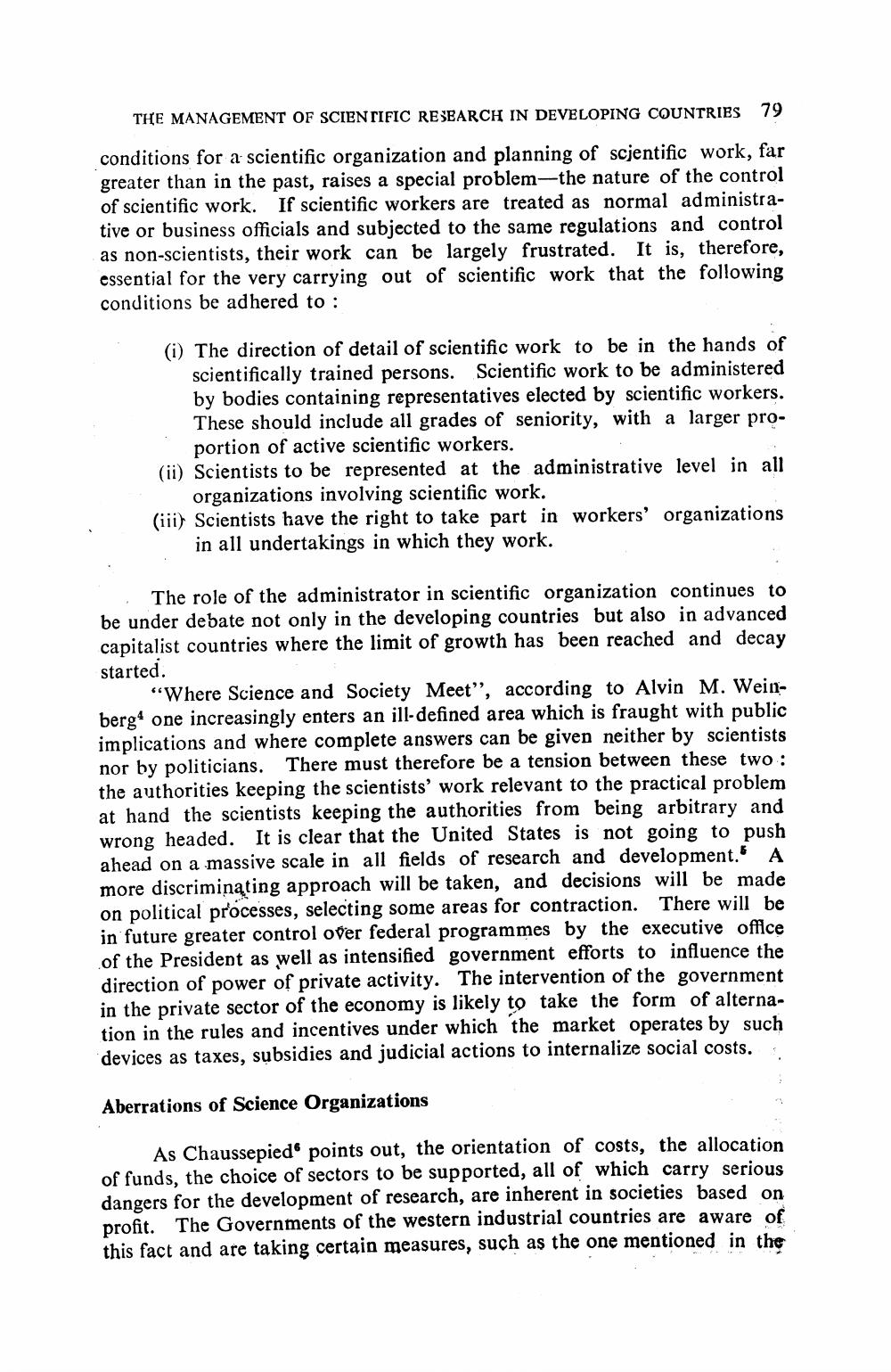________________
THE MANAGEMENT OF SCIENTIFIC RESEARCH IN DEVELOPING COUNTRIES
79
conditions for a scientific organization and planning of scientific work, far greater than in the past, raises a special problem-the nature of the control of scientific work. If scientific workers are treated as normal administrative or business officials and subjected to the same regulations and control as non-scientists, their work can be largely frustrated. It is, therefore, essential for the very carrying out of scientific work that the following conditions be adhered to:
(i) The direction of detail of scientific work to be in the hands of scientifically trained persons. Scientific work to be administered by bodies containing representatives elected by scientific workers. These should include all grades of seniority, with a larger proportion of active scientific workers.
(ii) Scientists to be represented at the administrative level in all organizations involving scientific work.
(iii) Scientists have the right to take part in workers' organizations in all undertakings in which they work.
The role of the administrator in scientific organization continues to be under debate not only in the developing countries but also in advanced capitalist countries where the limit of growth has been reached and decay started.
"Where Science and Society Meet", according to Alvin M. Weinberg1 one increasingly enters an ill-defined area which is fraught with public implications and where complete answers can be given neither by scientists nor by politicians. There must therefore be a tension between these two: the authorities keeping the scientists' work relevant to the practical problem at hand the scientists keeping the authorities from being arbitrary and wrong headed. It is clear that the United States is not going to push ahead on a massive scale in all fields of research and development." A more discriminating approach will be taken, and decisions will be made on political processes, selecting some areas for contraction. There will be in future greater control over federal programmes by the executive office of the President as well as intensified government efforts to influence the direction of power of private activity. The intervention of the government in the private sector of the economy is likely to take the form of alternation in the rules and incentives under which the market operates by such devices as taxes, subsidies and judicial actions to internalize social costs.
Aberrations of Science Organizations
As Chaussepied points out, the orientation of costs, the allocation of funds, the choice of sectors to be supported, all of which carry serious dangers for the development of research, are inherent in societies based on profit. The Governments of the western industrial countries are aware of this fact and are taking certain measures, such as the one mentioned in the




